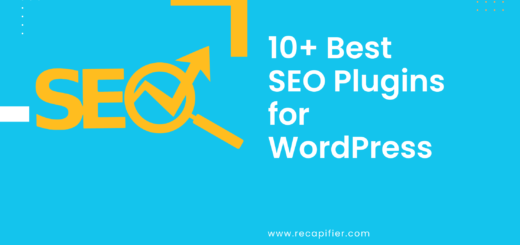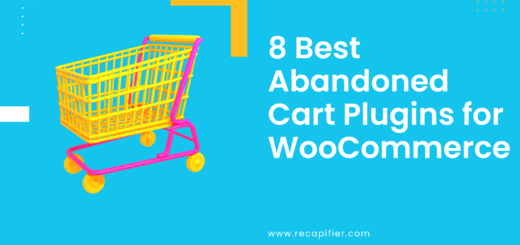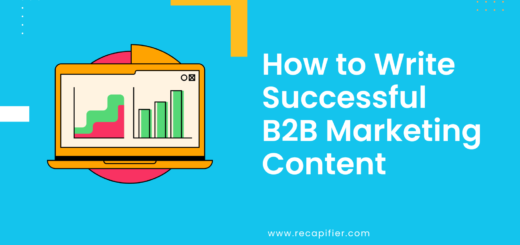How to Prevent Your WordPress Site From Getting Hacked
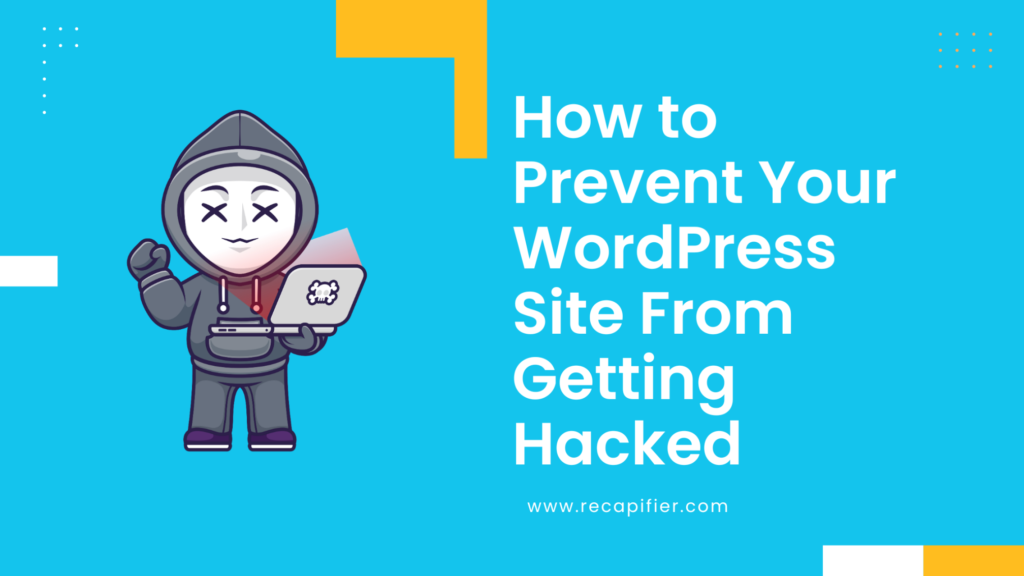
With WordPress becoming increasingly popular, hackers are also finding new and innovative ways to hack and get access to WordPress sites.
Preventing hackers from accessing the admin user roles on your WordPress site is important for protecting important website information and securing your customer’s data.
In this article, we’ll go over some of the best precautions to take for preventing your WordPress site from getting hacked.
10 ways to prevent your WordPress site from getting hacked
Let’s dive deeper into 10 different ways you can use to prevent your WordPress site from being accessed by hackers and spambots.
#1. Use strong passwords
Strong passwords are crucial for making sure user accounts are secure from hackers on your WordPress site. Ideally, you want to use strong passwords across your website. For instance, you should require all passwords on your website to contain at least one upper case, lower case, a number, and should contain symbols as well. As a result, all passwords on your WordPress site will be secure and very hard to guess for hackers.
Guessing weak passwords is easy which allows hackers to access admin accounts and cause damage to your WordPress site. In addition to this, you can also use password management tools to automatically generate strong passwords. This way, you don’t have to manually create secure passwords, the tool will do the work for you. You can use top-notch password management tools such as LastPass, ZohoVault, and Dashlane.
#2. Use a firewall
Firewalls are great for blocking unauthorized access to your WordPress site. Firewalls check user behavior and notify you when the behaviors of a specific user match an abusive bot. This way, you can identify threats as soon as they start acting on your WordPress site.
Firewalls are also commonly used for blocking suspicious user agents or UA. User agents are essentially used by browsers to tell websites what browser the user is using and what operating system they’re accessing your site from. For example, a browser might send information that the user is using Google Chrome and is accessing your website from Windows 10.
Such information is crucial in identifying suspicious user agents. You can block unfamiliar user agents as they might be bots trying to access your WordPress site with a fraudulent IP and user agent.
#3. Limit login attempts
Realistically, the chances of hackers logging in to admin user roles on the first try are none to little. Unless the hacker already knows the passwords, they are going to guess a combination of different passwords. This is where you want to step in and prevent hackers from trying to limitlessly log in to admin user roles on your WordPress site.
Limiting login attempts prevents hackers from getting “unlimited” tries to fraudulently access admin user role accounts on your site. Hackers will only have a few attempts to get the password right or else they will be restricted or locked out. For instance, you can implement a 90 minutes cooldown when there are too many failed login attempts. It’s a quick way to shut down bots and hackers from trying to access your WordPress site.
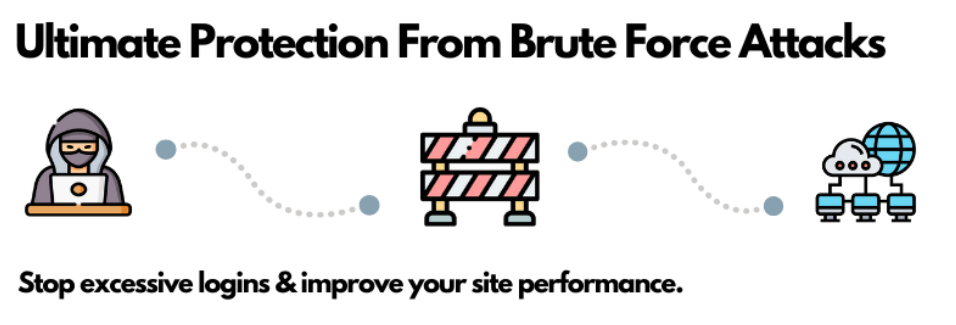
You can use the Limit Login Attempts Reloaded plugin to easily protect and limit login attempts on your WordPress site.
#4. Keep WordPress up-to-date
As a website owner, it’s important to keep your WordPress site up to date with the latest version available for protection against hackers. This is because hackers may try to find security vulnerabilities that previously existed in an older version of WordPress. Hackers scan through the update notes to find the security loopholes that were fixed recently. So if you’re on an older version of WordPress, the hacker now knows an easy way to get access to your website data.
Updating WordPress to the latest version not only gets rid of hackers’ attention but also helps remove other issues on your site that can lead to a better optimized and secure website.
#5. Remove abandoned plugins
Some WordPress plugins continue to be functional for a long time after the developers have left it or abandoned the plugin. This way, old plugins may have security vulnerabilities that will never get fixed. Such plugins are dangerous to keep on your WordPress as hackers will exploit such opportunities to access your WordPress site.
Another common technique hackers use is they buy abandoned plugins and updating them with malware and virus that can ruin your WordPress site without you realizing what happened. This is why it’s important to keep an eye on all installed and disabled plugins and actively remove abandoned plugins from your WordPress site.
#6. Use two-factor authentication
Two-factor authentication is one of the best ways to prevent unauthorized users from accessing your user accounts or your client’s user accounts on your WordPress site. 2FA works intelligently by only logging in users after they enter a password and a security code that’s sent to the user’s registered email address. You can also set up a 2FA app that will allow users to authorize the log-in using their app.
Even if hackers guess or know the password, there is no chance of them accessing your personal device or email address. As a result, you prevent any hacker or abusive bot from accessing admin user roles on your WordPress site.
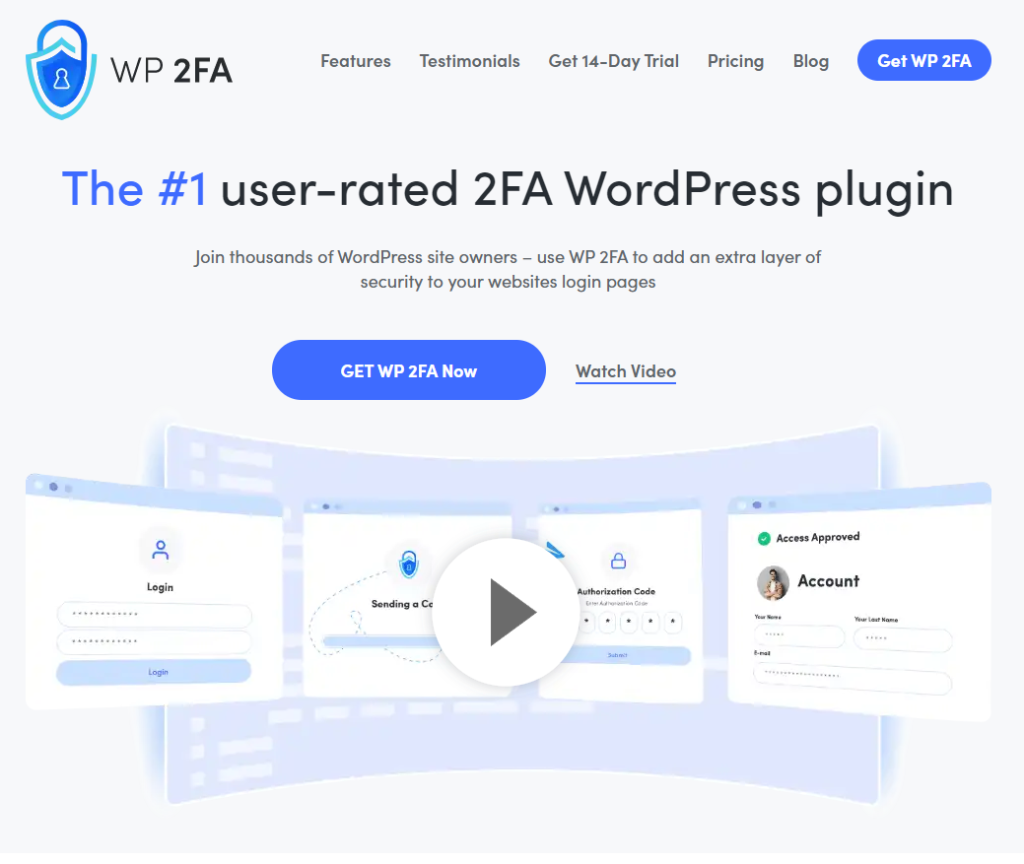
You can use the WP 2FA plugin for WordPress to set up two-factor authentication on your website.
#7. Disable file-editing in WordPress
WordPress by default lets you edit the code of your website through the admin panel dashboard. It’s a great feature however it can become a huge problem if unauthorized users access admin user roles on your WordPress site. If hackers find easy access to the wp-admin folder of your site, they can cause big damage and potentially take down your WordPress site within a few minutes.
You can restrict access to the wp-admin folder and limit the number of users who can access it. You can also add a secure password to the folder in your cPanel dashboard using a solid password management tool.
#8. Only use HTTPS
Ideally, you want to use HTTPS for your website instead of just using HTTP. This can be done by installing an SSL certificate on your website. It adds an additional layer of security and encrypts data that are being transferred from your website server to the client’s browser.
Without an SSL certificate installed on your website, hackers can easily intercept important data such as credit card information, passwords, and personal information of clients and steal it.

For a better understanding of using HTTPS on your WordPress site, you can read our detailed guide on how to implement SSL functionality using the Really Simple SSL plugin.
#9. Choose a secure website hosting provider
Most website owners do not take it seriously when choosing a secure website host. Choosing a shared hosting plan can increase the chances of your website being hacked. This is because hackers can hack into any website on the shared server and this could be your website as well.
Ideally, you want to choose a virtual or dedicated server for hosting your WordPress website. This way, if any hacker or unauthorized user tries to access your website’s data, the server can be shut down to prevent further damage. This is not possible when there are 10 other websites running on a single shared server.
You can take a look at our complete guide on WordPress hosting for a better understanding of what you need to protect your WordPress site.
#10. Always backup your WordPress site
It’s not only important to keep your WordPress site up-to-date but fully backed up as well. It’s one of the best ways for website owners to recover from a hacking disaster. This way, after the breach, you can stop worrying about the damage and simply roll back your WordPress site to an older version that was previously there before it got hacked.

Plugins like BackWPup make it easy for anyone to create a back up of important website data.
Conclusion
It’s always a great idea to prevent any hacking disaster from happening before it happens on your WordPress site. This is why it’s important to take precautionary measures to ensure your WordPress site is fully protected from hackers and abusive bots.
What are some of the ways you prevent your WordPress site from getting hacked? Let us know in the comments box below.

